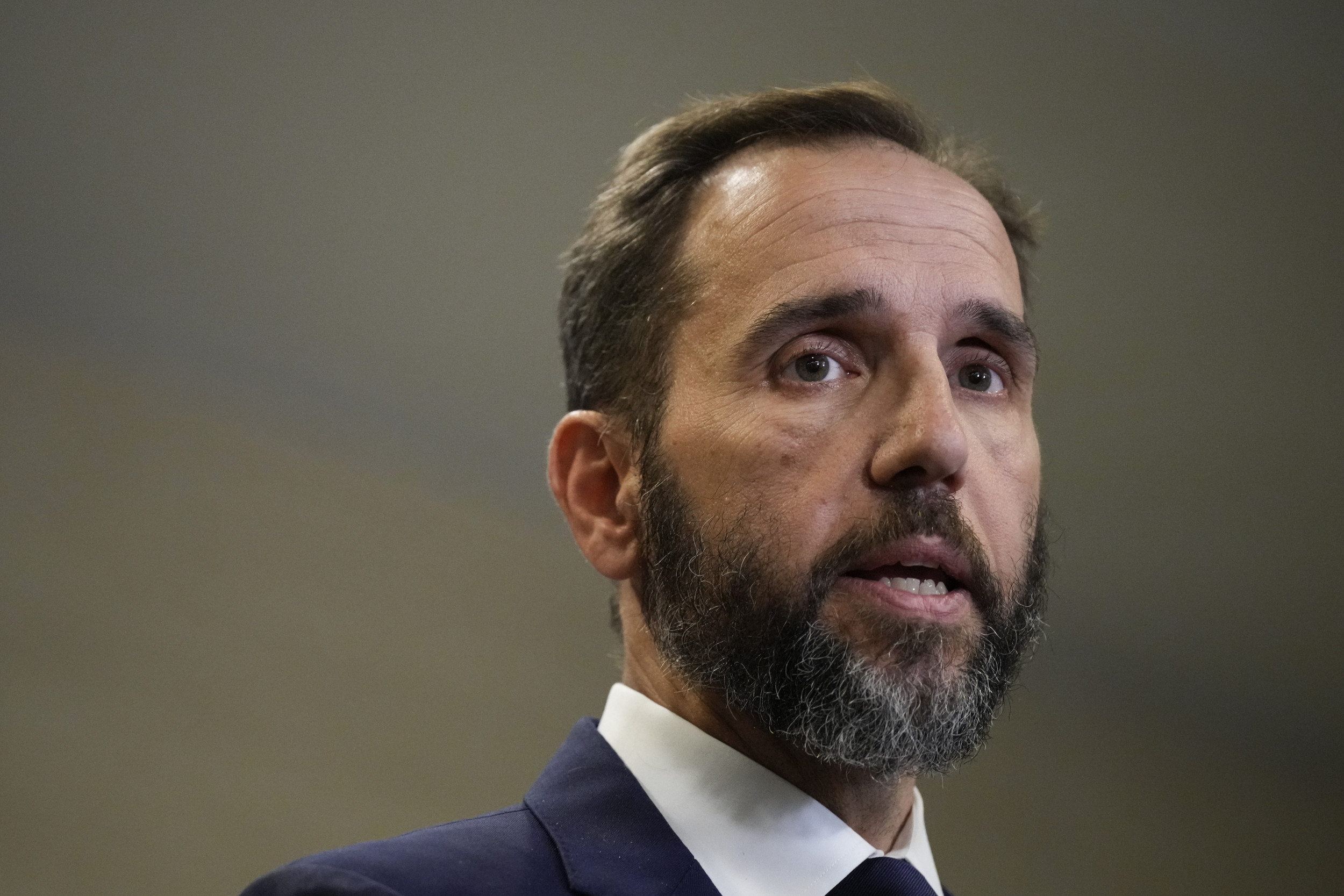Dueling tariffs between the United States and Mexico could mean higher prices for American consumers.
Mexican President Claudia Sheinbaum signaled Tuesday that she was willing to go tit-for-tat if U.S. President-elect Donald Trump follows through on his plans to raise tariffs on America's neighbors.
"One tariff would be followed by another in response, and so on until we put at risk common businesses," Sheinbaum said.
Some in Trump's world think he's using tariffs as a bargaining chip, but Sheinbaum's warning suggests Mexico has no plans to play nice and that Trump's dealings with the country will be much more tense than they were when Andrés Manuel López Obrador was in office at the same time as Trump.
Trump's proposed tariffs on Mexico, Canada, China
Trump announced Monday that he would raise a 25 percent tariff on all products coming from Mexico and Canada if the two countries do not stop the flow of drugs and migrants across borders. He also announced a 10 percent tariff on goods from China.
He had made similar promises on the campaign trail, vowing to implement a 60 percent blanket tariff on Chinese goods and a 10 to 20 percent tariff on imports from all other trading partners.

Trump has said that the massive trade escalation wouldn't impact consumer prices and would tax other countries while boosting American manufacturing. Most economists, including Republicans, disagree and say tariffs tend to get passed on in the form of higher prices for consumers since foreign sellers will typically raise the cost of their goods to offset tariffs they'd have to pay to the U.S. Treasury.
"A tariff is a tax paid by the U.S. importer, not a foreign country or the exporter. This tax ultimately comes out of consumers' pockets through higher prices," Jonathan Gold, NRF's vice president of supply chain and customs policy, said in a press release earlier this month.
What goods could be impacted by Mexican tariffs?
Last year, Mexico emerged as America's largest trading partner, eclipsing Canada and China. In 2023, the U.S. and Mexico exchanged nearly $798 billion in goods and services.
"The U.S. market and the Mexican market are actually not separate markets," Raymond Robertson, the director of Texas A&M University's Mosbacher Institute for Trade, Economics, and Public Policy, previously told Newsweek.
"There's a single labor market, there's a single studies market, single energy market; they're not separate markets. So, these tariffs on Mexico are a lot like putting tariffs on California...it's not good for our consumers."
Seven major industries, including auto, agriculture, electronics, mineral fuels, plastics, machinery and aluminum and steel, will be the hardest hit by tariffs between the two countries.
Small business owners have warned that the tariffs could be "devastating" for Americans. Fourth-generation farmer Joe Maxwell of Missouri told Newsweek that the tariffs would widely hurt American farms, which would have to pay more for items like nitrogen fertilizers.
"I'll explain one thing everybody in this country needs to know: If the president [Trump], and I'm certain that he will, fulfills his commitment to increase tariffs up to 20 percent across the board, 60 percent on China, 200 percent on John Deere manufactured in Mexico, then we're going to pay more than just to put this in the consumers' stores," Maxwell said.
Alice Vaughn, the founder and CEO of MilkToast Brands, a Las Vegas-based company, also warned that if the tariffs were imposed, "layoffs would be inevitable."
"All my products are currently made internationally, and while some might suggest I 'just switch to American manufacturers,' it's not that simple," she told Newsweek.
"Even U.S.-based manufacturers source materials and equipment globally, so tariffs would affect them, too. And for certain products, the manufacturing capabilities simply don't exist domestically. Decades of offshoring have built a global economy that can't be reversed overnight.
"The financial strain would force me to cut back on my team, limit new product development, and scale down operations. Customers, already feeling the pinch of inflation, would be hit with higher prices, which would drive down demand."



















 English (US) ·
English (US) ·